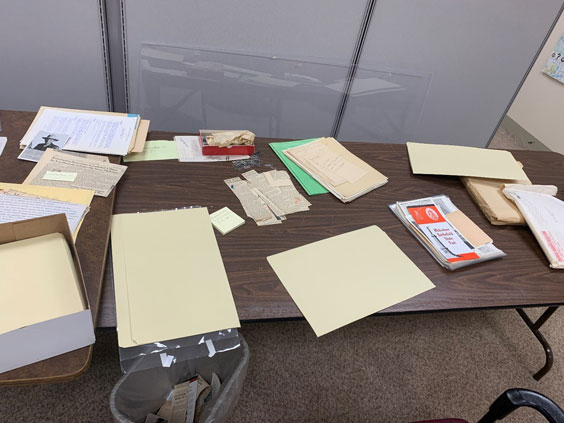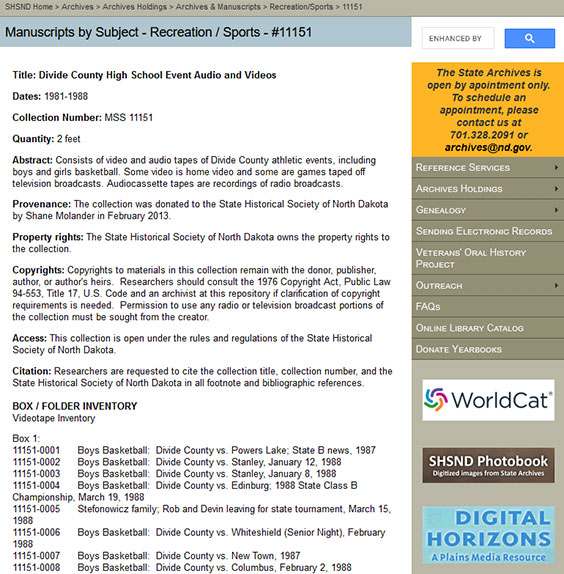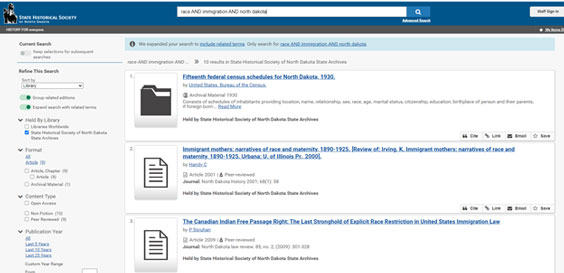As a reference archivist in the State Archives, I get to be the first and main contact for patrons researching towns, local communities, and genealogies or looking to access our government, manuscript, and photograph collections. I often encounter patrons who have never previously carried out research in an archive, are having difficulties locating relevant collections, or are just not familiar with enough North Dakota history to find what they want. People come to the reference staff when they hit roadblocks in hopes we have some extra knowledge that can help them out. However, I need to admit something. Prior to starting work at the agency in February, I hadn’t had the opportunity to do research in the State Archives and didn’t know much about North Dakota’s history. So how can I answer people’s questions correctly if I’m not even sure of the answer myself?
Luckily in the State Archives we sort and organize the collections to make sense of the materials—what we call processing. This allows us to determine the type of information a user or researcher can obtain from the collection. Archivists then create indexes, databases, and finding aids for the collections so researchers and reference staff know what each collection comprises, which is especially helpful if the collection is large.

Here the Roy Johnson and Louis Pfaller Collection is sorted and organized into labeled folders for entry into the online finding aid.
Since I know how our collections are organized and what search tools to use, I can answer questions on everything from state high school basketball teams to racial inequalities experienced by non-white settlers in North Dakota. Admittedly, both are topics I know little about. But I was taught in my training that archivists need not be subject experts on the material we work with; we just need to know how the information is organized, and that is certainly the approach I bring to my job.

Here you can see an agency website search result for an audio and video collection on Divide County athletic events.

A WorldCat database search on race and immigration in North Dakota netted these results in the Archives.
Ultimately, I think it is important to share how reference work gets done and the methods archivists use to help answer your questions for two key reasons: First, it helps break down some myths about archivists and what they do behind the scenes. And secondly, hopefully it makes you feel a little less lost as you begin your historical research. Rest assured, we’ve all been there!

